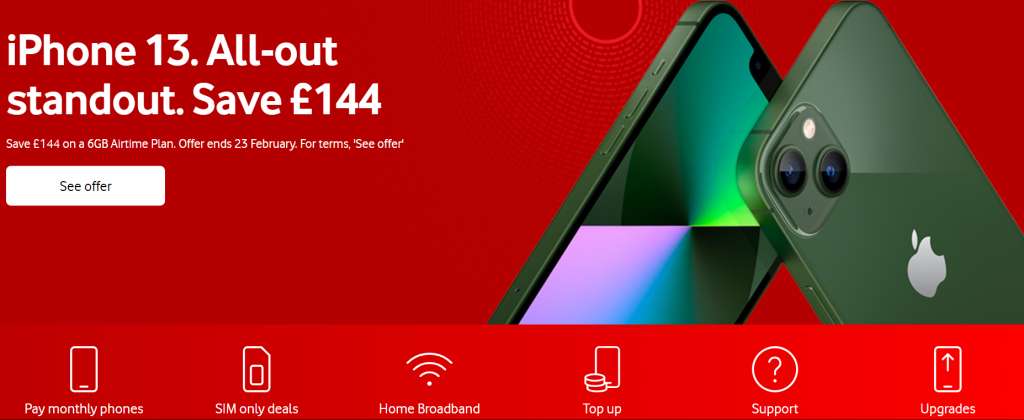
Deciding on the best phone plan or home broadband for yourself can be overwhelming. With so many options available, it’s hard to know which one is right for you. It’s important to understand what your needs are and to take into account factors such as coverage area, speed, data allowance and additional features. In this article, we’ll provide an overview of what you need to consider when choosing a phone plan or home broadband package so that you can make an informed decision that meets your needs.
What is phone and broadband?
If you’re like most people, you probably use your phone and broadband connection every day. But what exactly are they?
Phone service, also known as voice over IP (VoIP), is a digital telephone service that uses the internet to connect calls. Broadband is a high-speed internet connection that allows you to do things like stream video and download large files.
Most people need both phone and broadband service, and there are a few different ways to get them. You can buy them as a bundle from one company, or you can get them separately from two different providers.
The different types of phone plans and broadband
There are many phone plans and broadband providers available in the market today. It can be quite confusing to choose the best one for yourself, as there are so many different options available. Here is a breakdown of the different types of phone plans and broadband providers, to help you make a more informed decision:
1. Phone Plans
– Pay As You Go (PAYG): With this type of plan, you only pay for the calls and texts that you actually use. This is a good option if you don’t use your phone very often, or if you’re on a tight budget.
– Contract: A contract plan typically involves paying a monthly fee, which gives you a certain amount of call minutes, texts and data allowance. This is a good option if you use your phone frequently, and need a lot of data.
– Prepaid: Prepaid plans are similar to PAYG plans, in that you only pay for the calls and texts that you actually use. However, with prepaid plans you usually have to buy credit in advance, which can be used up over time. This is a good option if you want more flexibility than a contract plan, but don’t want to be tied down to one provider.
2. Broadband Providers
– ADSL: ADSL is the most common type of broadband connection in Australia. It uses your existing copper telephone line to deliver an internet connection, with speeds of up to 24Mbps download and
The pros and cons of each type of phone plan and broadband

There are many different types of phone plans and home broadband services available, so it can be hard to know which one is right for you. Here are some things to consider when choosing a phone plan or home broadband service:
-Cost: How much are you willing to spend on your phone plan or home broadband service?
-Data usage: How much data do you need?
-Coverage: What is the coverage like in your area?
-Speed: How fast do you need your internet connection to be?
Now that you know what to consider when choosing a phone plan or home broadband service, let’s take a look at the pros and cons of each type of service.
Phone plans:
-Pros: You can choose from a variety of plans depending on your budget and data needs. Most plans include unlimited talk and text.
-Cons: You may have to sign a contract, and if you go over your data limit, you may have to pay extra fees.
-Coverage: Depending on your carrier, coverage can vary greatly. Make sure to check coverage in your area before signing up for a plan.
Home broadband:
-Pros: No contracts, and you can usually get higher speeds than with mobile data plans.
-Cons: Can be more expensive than phone plans, and if you live in a rural area, coverage may be spotty.
How to choose the best phone plan or broadband for yourself
There are a few key things to keep in mind when choosing the best phone plan or broadband for yourself. Here are a few tips:
-Think about your needs: What do you use your phone or broadband for? If you only use it for basic tasks like making calls and sending texts, then you don’t need an unlimited data plan. However, if you use your phone or broadband for more data-intensive tasks like streaming video or music, then you’ll need a plan with more data.
-Compare plans: Once you know what kind of usage you have, compare plans from different providers to see who has the best deal for you.
-Read the fine print: Be sure to read the terms and conditions of any plan before signing up, so that you understand what you’re getting into.
Get The Best Phone Plan With Vodafone

Vodafone is one of the biggest mobile networks in Australia and offers a wide range of phone plans, including both post-paid and prepaid options. Their plans are suitable for a variety of users, from those who need a lot of data to stream music and videos, to those who only want a basic plan with a small amount of data. Vodafone also offers home broadband plans, so you can bundle your phone and internet services together for extra savings.
If you’re looking for a new phone plan, Vodafone is definitely worth considering. Here are some things to keep in mind when choosing the best phone plan or home broadband for yourself:
1. Data allowance – How much data do you need? If you’re a heavy user who likes to stream music and videos, you’ll need aplan with at least 10GB of data per month. However, if you only use your phone for basic tasks like checking email and social media, then you can get away with a smaller data allowance.
2. Contract length – Vodafone offers both 12-month and 24-month contract options. Choose the shorter contract if you’re not sure how long you’ll need the service, or if you think you might upgrade to a new phone in the near future. The longer contract will give you more flexibility and could save you money in the long run.
3. Extras – Some phone plans come with extras like free streaming subscriptions or international





